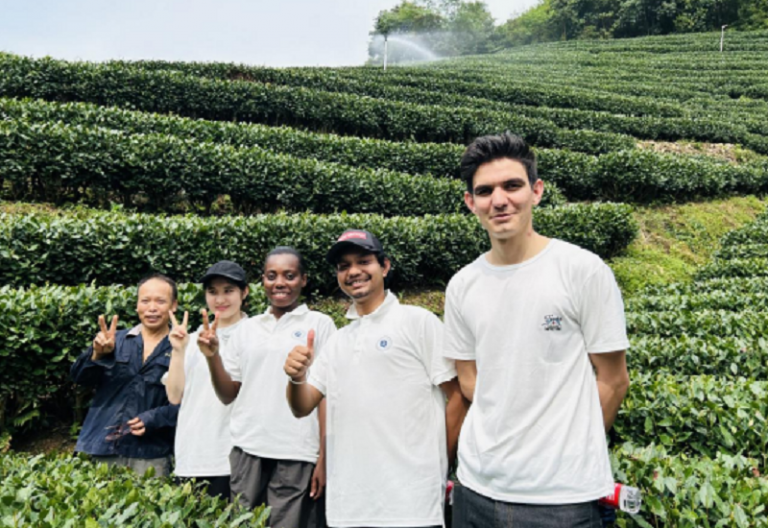
By Ali Ijaz, In the height of summer, Tonglu county in East China’s Zhejiang province, known as the “poetic and picturesque town by the Fuchun River,” is covered in vast stretches of green. Brimming with curiosity and excitement, my friends and I set foot on this beautiful land to experience the vibrant landscape. Here, charming farmhouses are nestled among the hills and streams, creating a unique and captivating scene.
At a quaint rural guesthouse where I resided, I encountered a man surnamed Shen, who was also the owner of this charming lodging. Shen treated me like family and my halting Chinese did not influence our normal exchanges. Thanks to his generous and warm hospitality, I was able to experience the rural life in Tonglu and feel the vigor and vitality of nature.
During my stay at Shen’s guesthouse, he told me the story of Tonglu’s development. Once a little-known farming county, Tonglu has transformed into a picturesque scenic destination. As he shared his memories, it felt like we were traveling through time, back to around 20 or 30 years ago. Back then, his house was encircled by only undulating hills covered in wild grass. The local government’s support became the catalyst for the county’s metamorphosis. Taking advantage of favorable policies, Shen keenly seized the opportunity to open a guesthouse. He also made full use of the hilly terrain resources, venturing into tea cultivation and fish farming.
In the soothing glow of the morning sun, I followed Shen to explore his well-maintained tea gardens and fish ponds. It was clear from his self-assured attitude that he had poured his dedication into every tea leaf and every swimming fish. As I breathed in the faint fragrance of tea carried by a soft breeze, I was completely absorbed in a feeling of serenity and contentment.
Shen carefully explained the distinct features of each tea variety, his eyes revealing a deep affection and love for this land. In a quiet corner of the tea garden, he demonstrated the intricate tea ceremony for me with skillful and graceful movements, making me feel like I was attending an exquisite tea culture performance. His vivid explanations gave me a deeper understanding of Chinese tea culture. Amidst the tea aroma, I felt as if I were touching the ancient and profound inspiration of Chinese culture.
In the days that followed, with Shen’s help, I was able to appreciate the natural beauty of Tonglu and the harmonious coexistence between humans and nature.
His guesthouse offered visitors the chance to engage in simple rural life and enjoy the pleasure of tea picking, roasting, tasting, and cooking. In the tranquil countryside, thousand-year-old trees stood as witnesses to the passage of time. They silently accompanied the tea garden, narrating the changes of history to visitors. People gathered beneath these ancient trees to sip tea and chat, or strolled through the tea garden appreciating the natural scenery.
Everything here captivated and inspired me. Surrounded by these mountains and waters, I was deeply moved by the power of nature. Each breath I took brought a deeper sense of contentment to my mind and body.
The joyful time passed swiftly like flowing water. As I bid farewell to Shen, he handed me a small note with his contact information. “Next summer, remember to come and find me in Tonglu. We’ll head to the old town to enjoy the lotus pond together,” he said. I nodded, touched by his warmth and sincerity, with my heart filled with anticipation for future journeys.
After I left Tonglu, that small note became the most precious gift in my heart and a bond of our friendship. It always brings to my mind the images of his warmth and hospitality, his tea garden, and the fish pond.
I am looking forward to meeting Shen again, walking together through every street of Tonglu, experiencing the history steeped in the old town, and appreciating the beautiful scene of a gentle breeze rippling across the lotus pond.










